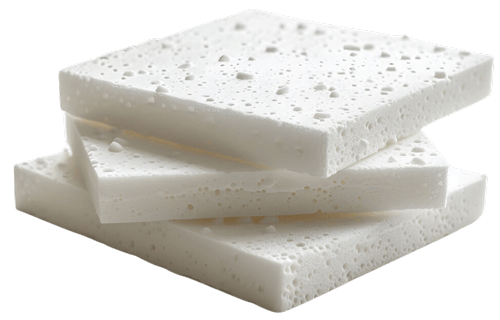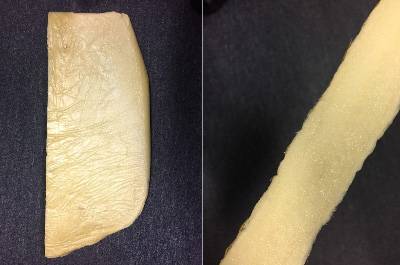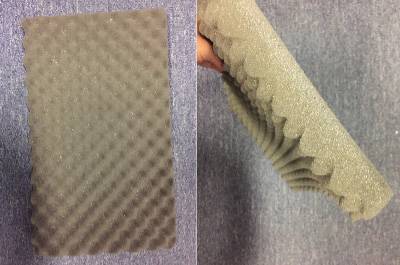Polyurethane Foam
Polyurethanes, formed from the reaction of polyols and isocyanates, are versatile materials found in various everyday products, including insulation and flexible items like bedding and furniture. Despite their widespread use, GreenCitizen does not accept rigid and flexible polyurethane foam, mattresses, couches, or furniture for recycling.

For your information, Polyurethanes form when polyol (an alcohol with more than two reactive hydroxyl groups per molecule) reacts with a diisocyanate or a polymeric isocyanate in the presence of suitable catalysts and additives. Polyurethane foam has an open cellular structure, and can be flexible or rigid.
Polyurethanes are ubiquitous in our everyday environment. Polyurethanes can be found in egg carton foams, camping mattresses, couches, insulation, liquid coatings and paints, tough elastomers such as rollerblade wheels, soft flexible foam toys, elastic fibers, and many other applications.

Rigid polyurethane foams are effective insulation materials that can be used in roof and wall insulation, insulated windows, doors and air barrier sealants. According to the U.S. Department of Energy, HVAC accounts for the majority of energy use (56 percent) in a typical U.S. building. When a home is well insulated, energy costs are reduced significantly while making the property more efficient and comfortable for its occupants. In addition to helping retain heat, rigid polyurethane will lower noise levels in homes and commercial properties.

Flexible polyurethane foam can be created in almost any variety of shapes and firmness, resulting in a variety of consumer and commercial products, including bedding, furniture, automotive interiors, carpet underlay and packaging. It is light, durable, supportive and comfortable. Flexible polyurethane foam accounts for about 30 percent of the entire North American polyurethane market, and is used largely for bedding, furniture and in the automotive industry.
However, GreenCitizen is NOT ACCEPTING rigid and flexible polyurethane foam. Mattresses, couches, and furniture are also not accepted. Please see the images above for the types of packaging polyurethane GreenCitizen cannot accept.
